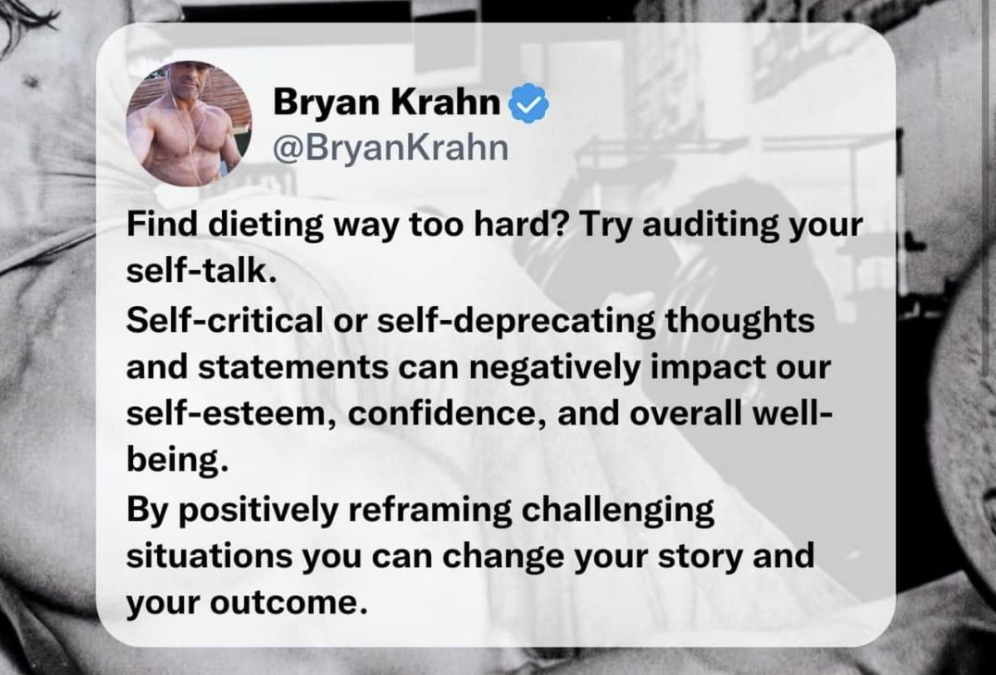Maybe you need to rewrite your story.
No, not revise your history—there’s more than enough “truth massaging” in this field already.
I’m talking about changing how you think about and describe your relationship with food.
For example, one of my clients always says he loves to eat BIG.
But he’s also in the midst of a fat-loss phase right now and routinely responds to any drop in calories with half-joking statements like “Oh man, this is gonna be hard!”
In truth, he’s just being honest, ’cause nobody on a diet LIKES the thought of eating even less food.
But the thing is, that kind of defeatist narrative can really mess with you.
Negative self-talk is the habit of engaging in self-critical or self-deprecating thoughts and statements, and it can impact our self-esteem, confidence, and overall well-being.
The theory is that our subconscious mind absorbs and processes these messages, which then negatively affects our beliefs, attitudes, and actions.
Basically, it’s like the famous Henry Ford quote: “Whether you think you can, or you think you can’t – you’re right.”
It’s much easier to adapt to challenging situations if you start by changing your thought process first. This is especially true of both food and your relationship with it.
So instead of thinking:
“A 200-calorie reduction? This is gonna be hard. This already sucks. I hate being hungry. I hope I don’t break down.”
Try:
“A 200-calorie reduction? I doubt I’ll even notice. And If I do, it’s only because I’m paying extra close attention. Plus a little hunger is a good indicator of fat loss. I can do it!”
If this all sounds like new-age nonsense then perhaps you’ve already got some negative self-talk going on? Try to keep an open mind because I assure you, this works for many.
It’s one of the most enlightening exercises you can do.
So, audit your self-talk.
See how YOU think and speak about your relationship with food.
Then change your story. And change your outcome.
– Coach Bryan

